The Center for Analysis of Liberty and Authoritarianism (LAUT) is an independent and non-partisan institution for interdisciplinary research that is committed to producing and disseminating knowledge about the quality of the rule of law and democracy. LAUT aims at monitoring the various manifestations of authoritarianism and threats to liberties, in order to support the mobilization of civil society and the protection of civil liberties.

Associate at the Department of History, Harvard University Tokyo Foundation for Policy Research Sylff Fellow. Former visiting scholar at the Institute for Global Law & Policy – Harvard, and lecturer at the International Relations Institute at the University of São Paulo. She was also a Global Law researcher at Fundação Getulio Vargas, a visiting researcher at the Max Planck Institute, a Tokyo Foundation for Policy Research Sylff Fellow at the Erik Castrén Institute at the University of Helsinki, a Kathleen Fitzpatrick Fellow at the Laureate Program at the University of Melbourne. She holds a bachelor’s, a master’s, and a doctoral degree in Law from the University of Sao Paulo.

PhD candidate and Master’s in Political Science from the Institute of Social and Political Studies of the State University of Rio de Janeiro (ESP-UERJ). She has a law degree from the Federal University of Juiz de Fora (UFJF-GV). She is a researcher at Beemote, the Center for Studies and Research in Political Theory and Brazilian Political Thought. She was awarded a master’s degree from the FAPERJ Nota 10 Program.

Professor at Universidade Presbiteriana Mackenzie, lawyer at Coletivo de Advogados em Direitos Humanos – CADHu, deputy manager at the Center for Legal Anthropology – Nadir/USP and coordinator of the Brazilian Institute of Criminal Sciences (IBCCRIM) courses center. She holds a bachelor’s degree in Law from the University of Sao Paulo, a master’s and a doctoral degree in Anthropology from USP, and a specialization in Criminology from the IBCCRIM. She was a visiting researcher at the University of Ottawa and project coordinator at Conectas and at the Criminal Justice Network.

Professor in the undergraduate law program and publications coordinator at FGV Law School in São Paulo. Coordinator of the Platform for Freedom of Expression and Democracy (PLED) at the same institution. Director of the Tornavoz Institute. Recipient of the Fox International Fellowship awarded by Yale University (2015-2016). She holds a PhD in Law from the University of São Paulo (USP), a Master of Law and Development from FGV Law School in São Paulo and a Bachelor of Law degree from the Federal University of Minas Gerais (UFMG).

Professor at the University of São Paulo, and the Alexander von Humboldt Foundation’s Ambassador Scientist in Brazil. He holds a bachelor’s degree in Law from the Pontifical Catholic University of São Paulo, a master’s and a doctoral degree in Political Science from USP and a doctoral degree in Law from the University of Edinburgh. He was a visiting researcher at the New York University, at the University College Oxford, at the University Humboldt Berlin, and at the Wissenschaftszentrum Berlin – WZB.
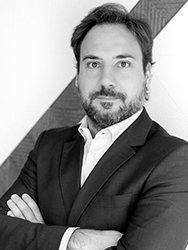
Professor at FGVLaw and attorney at a Brazilian law firm. He holds a bachelor’s degree in Law from the University of São Paulo, a master’s degree in Law from the University of Coimbra, and a doctoral degree in Law from USP and the Leiden University. Former federal public manager, he worked as Secretary of Human Rights and Citizenship for the City of São Paulo, Secretary for Legislative Affairs at the Ministry of Justice, and Deputy Secretary for Legal Affairs at the Brazilian Federal Presidency.
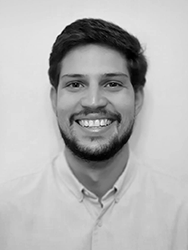
PhD candidate in constitutional law at the University of São Paulo (USP). Full-time PhD visiting research student at King’s College London (KCL). MSc in law and development from the São Paulo Law School of the Getulio Vargas Foundation (FGV). He holds a bachelor’s degree in law from the São Bernardo do Campo Law School (FDSBC). Researcher at the Constitution, Politics and Institutions group (CoPI) from USP’s Faculty of Law. Member of the Coalition for Academic Freedom in the Americas (CAFA).

Professor at the Federal University of Uberlandia and associate researcher at the Law & Democracy Unit at the Brazilian Center for Analysis & Planning – CEBRAP. She holds a bachelor’s, a master’s, and a doctoral degree in Law from the University of Sao Paulo. She worked as a researcher at Getúlio Vargas Foundation.

Master’s candidate in Sociology at the University of Sao Paulo, from where she also holds a bachelor’s degree in Law. While an undergraduate student, she did an exchange program at the University of Chile, where she worked as a researcher at the Justice Studies Center. She was a research intern at the Center of Studies on Crime and Penalty at FGV, a researcher at the Land, Work and Citizenship Institute (ITTC) and a clerk at the São Paulo Court of Justice.

Professor at Insper and researcher at the Solomon Center for Health Law and Policy at Yale Law School. She holds a bachelor’s degree in Law and a bachelor’s degree in Social Sciences from the University of São Paulo, a master’s degree in Law from Yale University, and a master’s and a doctoral degree in Law from USP. She was a visiting researcher at the MacMillan Center for International & Area Studies at Yale University, a student fellow at the Global Health Justice Partnership at Yale University, and a visiting researcher at DEJUSTICIA.
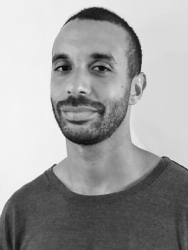
Sociologist, Capes Scholar and PhD candidate in the Post Graduate Program in Sociology of the Universidade Federal Fluminense, where he also completed his master’s degree in Culture and Territorialities. He holds a bachelor’s degree in Social Sciences from the Universidade do Estado do Rio de Janeiro, where he was a member of the Laboratory of Violence Analysis (LAV-UERJ). He was also a Capes scholar for the Observatory of Education (OBEDUC) program at the Universidade Federal do Rio de Janeiro.
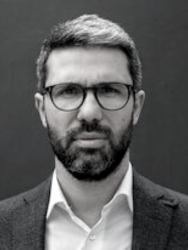
Professor at the University of São Paulo. He holds a bachelor’s, a master’s, and a doctoral degree in Law from USP. He was a visiting researcher at the Max Planck Institute for Criminal Law in Freiburg, at the Center for Latin American & Latino Studies at the American University in Washington-DC, and at the Centre for Socio-Legal Studies at the University of Oxford.









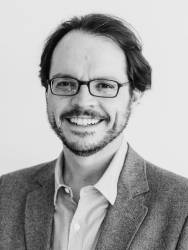











LAUT adopts good practices focused on transparency, enabling access to information about its activities and financial reports. The research center is funded through donations from private sources, as well as national and international foundations and non-governmental organizations. These resources are invested in conducting research, disseminating its results, and promoting educational programs on manifestations of authoritarianism and the repression of freedoms, in addition to maintaining the necessary infrastructure for these purposes.
![]() Income Statement 2022
Income Statement 2022
![]() Income Statement 2023
Income Statement 2023
![]() Accounting audit 2022 (portuguese only)
Accounting audit 2022 (portuguese only)
![]() Accounting audit 2023 (portuguese only)
Accounting audit 2023 (portuguese only)

















